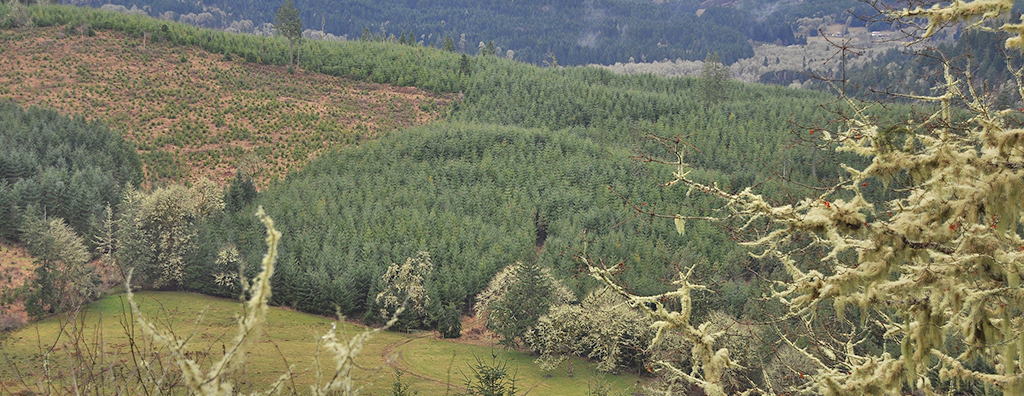
A Carbon Copy of California's Cap and Trade for Oregon?
Sheldon Zakreski, The Climate Trust
As published by California Carbon Info – May 31, 2017
The Golden State has an admirable track record of pioneering environmental policies, and the 2013 introduction of an economy-wide cap on carbon emissions is no exception. Now that California’s neighbor to the north is debating whether to adopt a similar program and link it with California, it bears asking, does Oregon need to copy California’s system in order to create a common market?
First, it may be beneficial to dive in and take a look at why linking a state-level cap and trade program with other jurisdictions makes sense.
Oregon’s proposed program would cover approximately 100 businesses and have an emissions cap of 50 million metric tons of carbon dioxide equivalents. By linking with California, Ontario, and Quebec, Oregon would have access to a market with several hundred more compliance entities and an emissions cap ten times as large. Therefore, Oregon companies participating in a linked market would have significant flexibility in finding the lowest cost options to reduce their emissions. In addition to reducing compliance costs, linking a new Oregon market to one that has been in existence for several years will also reduce any volatility that Oregon businesses might experience. The twin benefits of least-cost compliance and minimal market volatility are clear benefits for Oregon in linking to a large market.
Prior to adopting legislation and designing a cap and trade program, Oregon would be wise to consider the criteria set by the three jurisdictions where it is considering linkage in order to set itself up for success in the coming years. Because of its status as the first and largest jurisdiction, California’s requirements for linkage, in particular, should be closely considered.
When California passed its cap and trade law, it embedded four tests in its Health and Safety Code that any jurisdiction seeking to link with their market must satisfy.
- Is the program stringent enough? More specifically, is its cap on emissions as steep over a comparable timeline, does it cover a comparable portion of the economy, and does it set similar offset usage limits?
- Does it prevent California from enforcing it’s requirements?
- Are the jurisdiction’s requirements enforceable?
- Does it create any liability for California?
An official review by California’s Justice Department approving linkage with Ontario shows that flexibility exists when designing a cap and trade program. Like California, Ontario’s program covers 80% of the economy and sets an 8% offset usage limit. Unlike California, Ontario’s 2030 reduction target is 3% less stringent than California’s target. Ontario also takes a differing approach to mitigate the potential for fraud and the eligibility of distinct offset types. Despite Ontario’s divergent approach on offsets, the California Justice Department noted that it adhered to their Health and Safety Code that offsets be real, additional, permanent, quantifiable, and verifiable. Interestingly enough, these criterion derive from Western Climate Initiative discussions going back over 10 years, and which Oregon—along with California, Arizona, New Mexico, and Washington—played a role in shaping.
California’s Justice Department also noted that an in-state entity could use an offset created through the Ontario program to comply with its California obligation and that this would meet the enforceability test because Ontario, like California, has rules in place to prevent fraud and ensure offsets are real, additional, permanent, quantifiable, and verifiable.
These findings clearly demonstrate that Oregon would have a great deal of flexibility in tailoring the extent of reductions, the various types of eligible offsets, and mechanisms to police offsets toward its own specific policy goals.
In regard to offset types, Oregon could consider charismatic projects that conserve grasslands (an eligible project type in Ontario and Quebec, but not yet under consideration in California). Oregon’s program could also be built to encourage offset projects that take into account the unique characteristics of our forests. For example, the state could allow small landowners to aggregate into a single project—in support of efforts to reduce the costs associated with implementing an offset project and having it verified. This would have the positive benefit of opening up a new source of revenue for small family-owned forests. Additionally, the state could embrace innovation, drafting its own protocols that consider how coastal forests and forests east of the Cascades could be managed for a carbon benefit.
While gaining access to a linked market is important for ensuring Oregon’s cap and trade program is part of a more robust and less volatile market, the price of admission in no way binds Oregon to designing a carbon copy of California’s market. This is important for state policy makers to bear in mind as they pursue an approach to offsets that allows the majority of farmers and forestland owners to serve as a key source of offset supply—advancing the duel interests of reducing greenhouse gas emissions, while also encouraging rural economic development.
Image credit: Flickr/NRCS Oregon